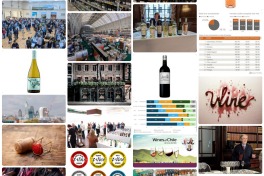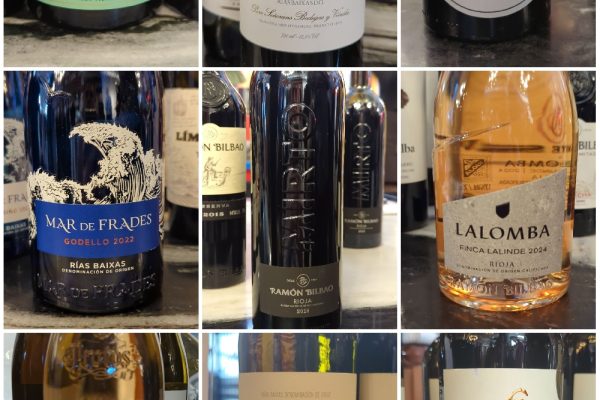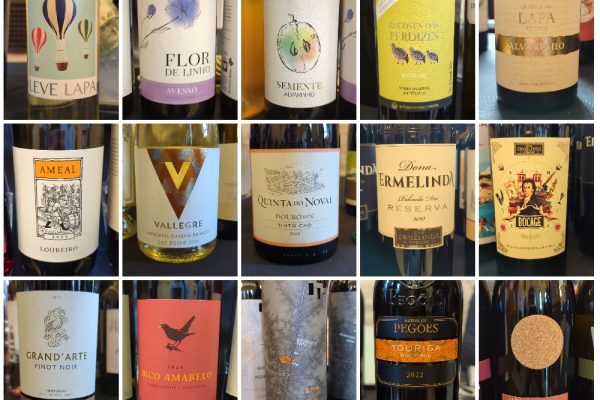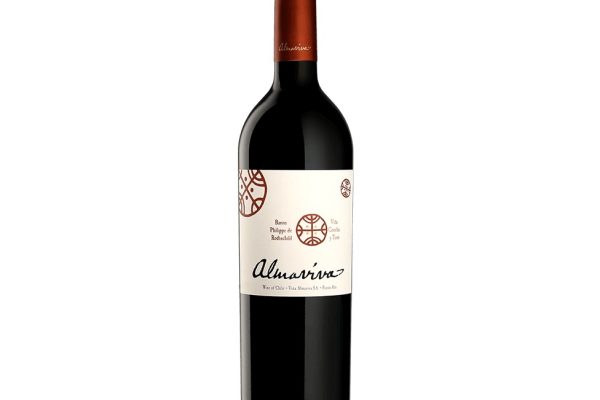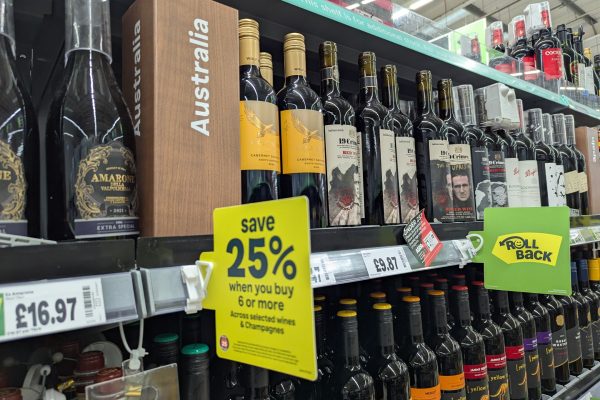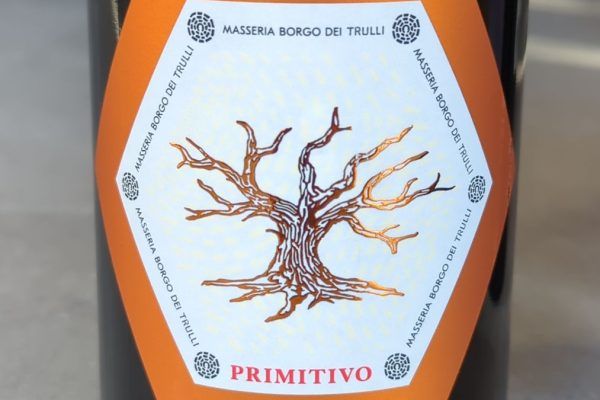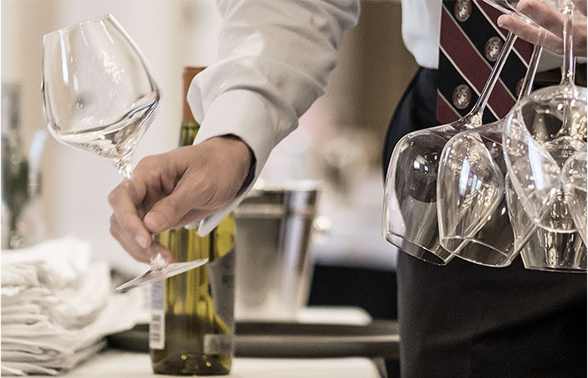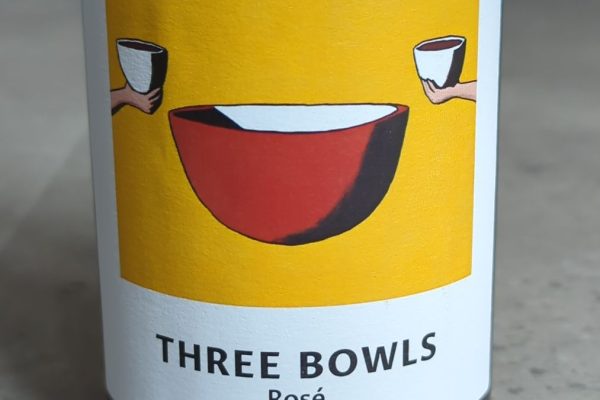News
Issues affecting the wine industry and the wine you drink
-

Flooding in South Africa Could Disrupt Your Favourite Wines
The South African wine industry is facing a new set of challenges that could potentially disrupt the supply and quality of wines from the region. According to a recent article on Wine Spectator, South African winemakers are grappling with flooding, which has caused significant damage to vineyards and infrastructure. This comes on top of the…
-
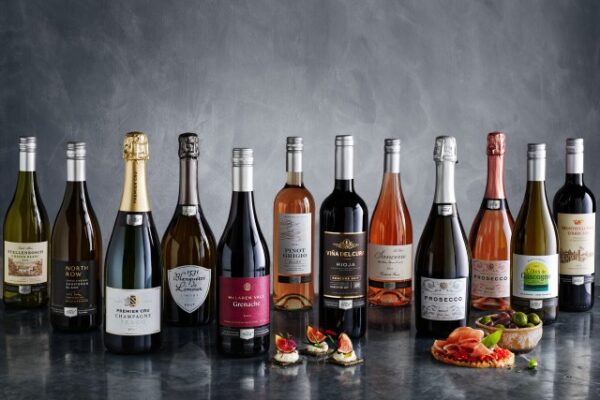
Tesco’s Finest Wine Labels Get a Makeover
Drinks Retailing is reporting that Tesco has started to update the labels of its Finest range of wines. The move aims to enrich the customer experience by using the labels to tell the story behind each wine. This initiative is part of Tesco’s broader strategy to enhance its Finest packaging and offer consumers a more…
-

The Growth and Challenges of the Prosecco DOC Industry
A new research paper “Dominant business models and sustainable long-term growth, A System Dynamics-based analysis of the Prosecco wine industry” (pdf) investigates the strong growth of the Prosecco (DOC) industry and its implications for long-term sustainability. The industry’s great rise can be attributed to a variety of factors. Regulatory changes in 2009 significantly expanded the…
-

French Winemakers Destroy Spanish Wine
The Telegraph newspaper has reported that, in a striking move against what they see as unfair competition, around 500 French wine makers from Narbonne and Perpignan stopped lorries importing Spanish wines at the border town of Boulou. They emptied thousands of gallons of rosé and smashed 10,000 bottles of Spanish sparkling wine on the roads….
-
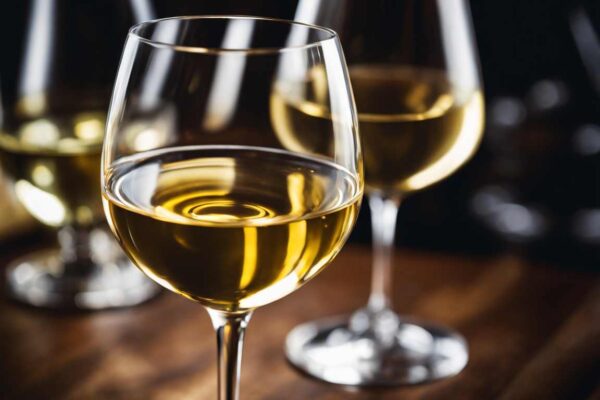
Do Wine Reviews Matter?
There’s recent research (PDF) looking into the impact of peer preferences and expert reviews on consumer behaviour, specifically for products like wine that consumers can sample. Through two experimental studies, the research identified that when consumers taste wines, their own rating significantly influences their willingness to pay (WTP). A one-star increase in their rating can…
-
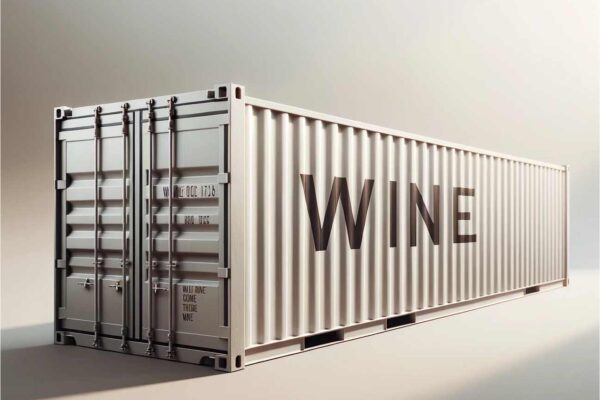
New UK Wine Reforms Announced
The UK government has announced a series of reforms aimed at boosting investment and easing regulatory burdens on the wine industry. Set to take effect in 2024, these changes are part of a broader strategy to modernise the sector and encourage sustainable practices. The reforms were announced are the result of a public consultation. The…
-

The Wine Buying Experience in Specialist Wine Retailers
There’s an interesting new whitepaper titled “Wine Decisions: The Wine Buying Experience in Independent Specialist Wine Retailers” based on a research study conducted by KAM in collaboration with Hallgarten & Novum Wines, focusing on consumer behavior within the UK’s independent specialist wine retail sector. This study, involving 1,185 participants, explores the driving factors influencing consumer…
-

French Wine Gold Medal Insights
The French online magazine TheLocal has an enlightening article (you can only view once before goes to paywall) on French wine gold medals that you might have seen on French wine bottles. In 2022, over 24,000 medals were awarded, originating from various wine competitions (les concours) held throughout France. These competitions require a fee for…
-

Orange Wine is Breaking into the Mainstream
The Telegraph newspaper is explaining how orange wine is breaking into the mainstream. Once a niche taste favoured by few, orange wines are starting to go mainstream. They sit between red and white wines, although their vinification process sharply deviates from that of rosé. While rosé comes from red grapes handled much like white ones,…
-

Wine Buyers Want a Personal Touch for Subscriptions
Recently, the wine subscription market has seen an increase in demand for a more personalised experience. Subscribers are no longer content with fixed selections and want curated choices that match with their unique palate. In a recent edition of the Subscription Commerce Readiness Report, The Loyalty Factor, PYMNTS Intelligence conducted a survey involving over 2,000…
-

Reducing the Carbon Footprint of Wine: The Bottle Weight Accord
The wine industry is increasingly under scrutiny for its environmental impact, particularly its carbon footprint. A recent report by Dr. Peter Stanbury, prepared for the Sustainable Wine Roundtable (SWR) (pdf), has shed light on the significant but often overlooked aspect of the weight of wine bottles. The report reveals that the single largest source of…
-
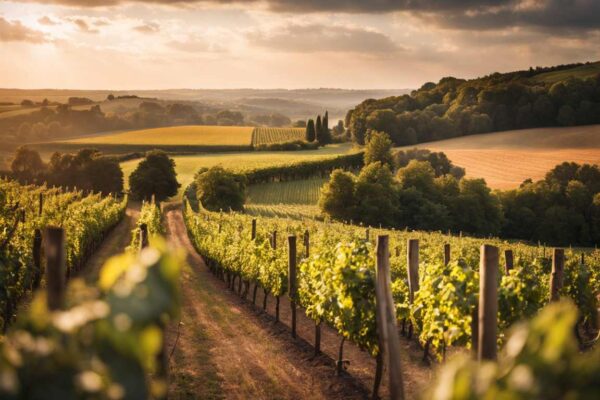
Rapid Growth of Vineyards Bolsters England’s Agricultural Sector
Vineyards have emerged as the fastest-growing edible agricultural sector in England, according to recent DEFRA statistics, with grapes now constituting 36% of the country’s soft fruit crop, marking a sector growth rate of 21% over the past year. Wines of Great Britain has reported a significant growth in vine plantings by 74% over five years…
-

Crisis Distillation
The Wine Economist is reporting that the concept of crisis distillation is resurfacing in the global wine industry. This practice involves government programmes buying surplus wine to convert it into industrial alcohol, aiming to stabilise wine prices and grower incomes. While it was a common practice in the European Union, especially during the COVID-19 pandemic,…
-

The French Wine Industry’s Battle Against Climate Change
According to an article in Nature, the French wine industry, a major part of French culture and economy, is grappling with the challenges posed by climate change. With its strict appellation d’origine contrôlée (AOC) system, which sets rigid rules about geography, grape varieties, and production techniques, the industry faces unique challenges. However, French wine-growers are…
-

New Free Rioja Wine Academy Course
The Rioja Wine Academy, backed by the Rioja DOCa Control Board, has launched a free introductory online course called Rioja Enthusiast. This course is the academy’s first aimed at consumers and wine lovers with no prior knowledge of wine. The course covers the fundamentals of Rioja wine in just four hours, including topics like reading…
-
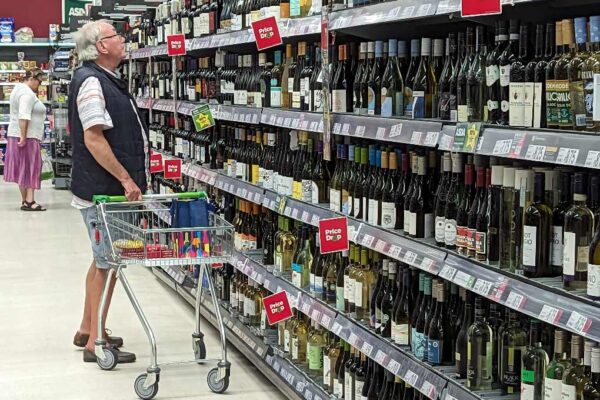
Beware of Decoy Effects When Buying Wine
New research titled Decoy Effects in a Massive Real-World Shopping Dataset focuses on the impact of ‘decoy’ options on consumer choices, specifically in the context of wine purchases in the UK. The study examined a large dataset of 3.6 million wine purchases made by 755,158 unique customers over a one-month period. In the situation where…
-
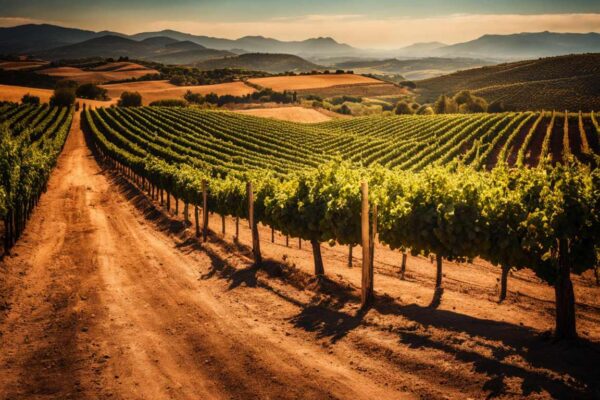
Spain’s Historic Low Wine Harvest
Spain’s wine industry is grappling with its smallest harvest ever recorded, largely due to a series of extreme weather events. The 2023 grape harvest has been severely impacted by droughts, hail storms and heat waves, affecting vineyards across the country. Spain is expected to produce only 34.25 million hectolitres of grapes this year, representing a…
-

Scots to Be Forced to Pay at Least £6 a Bottle
The Telegraph is reporting that The Scottish National Party (SNP) has announced plans to increase the minimum price for a bottle of wine to £6. The decision comes in the wake of a surge in alcohol-related deaths and harm in Scotland, which have reached their highest levels in 14 years. The SNP’s drugs and alcohol…
-
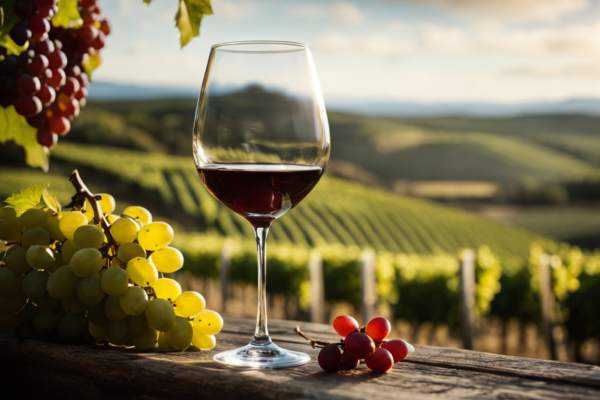
Increase in British Vineyard Buying Demand
Barrons/Penta is reporting that the United Kingdom is witnessing a surge in interest in winemaking, positioning it as the fastest-growing wine region globally. This increasing interest has led to a significant demand for British wine estates. The southeast England is experiencing a spike in demand for vineyards and undeveloped land suitable for viticulture, from international…
-

Research into Words That Describe Wine
There’s new research (PDF) from Maria Kana of Linnaeus University into the language used in wine reviews, particularly the adoption of standardised wine vocabularies like the Wine Aroma Wheel (WAW) and the Wine Lexicon of the Wine and Spirit Education Trust (WSET). The study aimed to understand how closely professional wine reviewers stick to these…
Did You Know?
For Crémant, grapes must be harvested by hand and the wines must undergo at least nine months’ ageing before release. More
In 2024, the UK was the second-largest export market for Champagne globally, after the United States. More
Local UK bottling of wine represents about 40% of imported wine. More
Around 1% of people, typically severe asthmatics, have a sulphite sensitivity. More
A large 80% of Australian wine arrives in the UK in bulk. More
Only about 0.02% of Australia’s landmass is dedicated to vineyards. More
In 2024, New Zealand produced only 1% of the World’s wine. More
In 2024, the US imported 37% of World production of Pinot Grigio and the UK was is in second place at 27%. More
In 2024, the UK was South Africa’s largest export market, with 40% of total exports. More
In 2024, the United Kingdom imported 22.3 million bottles of Champagne, a decline of 12.7% compared to the previous year. More
Larger Champagne producers source grapes from as many as 80 different vineyards throughout Champagne. More
Champagne houses and growers collectively produce around 300 million bottles annually. More
In 2025, the Champagne region was home to about 2,124 Champagne houses and approximately 19,000 growers. More
Provence is one of the leaders in the conversion to organic viticulture, with 61% of vineyards certified. More
8% of the South Africa’s grape production is Fairtrade-certified. More
Up to 80% of wine aroma compounds come from grape skins. More
Glycerol is the third-largest component of most dry wines after water and alcohol which is why they so often feel ‘smooth’ or ‘silky’ in the mouth. More
Humans are more than 400 times more sensitive to bitter than sweet. More
Humans can detect the earthy molecule geosmin at about 100 parts per trillion and camels are so sensitive to it they can locate damp ground from roughly 50 miles away. More
During the phylloxera crisis of the nineteenth century, 90% of Europe’s vineyards were destroyed. More
In 2025, for La Vieille Ferme, also known as “The Chicken Wine”, sales surged by 49.4% to £110.8 million. More
In 2025, in the UK, Yellow Tail held the top position with sales, marking a 9.8% increase over the previous year. More
In 2024, the UK was the second-largest wine importer in volume and value. More
In 2024, the UK was the fifth-largest wine-consuming country globally. More
In 2025, global wine consumption continued its downward trend, estimated at 214.2 million hectolitres, the lowest since 1961. More
In 2025, online alcohol sales had a 20% increase in value over five years. More
In 2025, the number of UK vineyards rose to 1,104 and wineries to 238, with land under vine expanding to 4,841 hectares, a 510% increase since 2005. More
Moët Hennessy alone commands nearly 46.66% of the Champagne market, with the top three producers together holding about 61%, and the top five controlling over 72%. More
In 2024, the Champagne market was worth roughly €3.92 billion. More
In the marketing year 2023/24, white wine accounted for roughly 55% of Spain’s output, whereas red and rosé together made up about 45%. More
In the UK, 92% of wine is consumed within 48hrs of purchase. More
The majority of wines, 95%, use commercial rather than wild yeast. More
Between 0.5 and 10 litres of water, per litre of wine, are needed for cleaning during winemaking. More
Machine harvesting can achieve up to 100 tons of fruit per day vs 1 ton for a human. More
In Germany, 2025 was the smallest wine vintage since 2010. More
The majority of vineyards, 90% in 2019, are farmed with heavy chemical interventions. Only 6% are organic. More
90% of low and coastal areas in south Europe and California will no longer be able to produce good wine by the end of the century. More
IMAGE WALL
Tools
Recent
Tags
25% Off Wine AI Aldi Amarone Argentina Articles Asda Australia Award Awards25 Bizarre Blog Books Bordeaux Bulgaria Bulk Bottling Cabernet Sauvignon Carménère Cava Champagne Chardonnay Chile Climate Change Coop Costco Decanter Duty English Wine EPR Events Fairtrade Food France Germany Glossary Greece Health Hungary Italy IWSC Jeroboams Laithwaites Legislation Liberty Wines Lidl Low Alcohol M&S Majestic Malbec Merch Merlot Morrisons Natural News New Zealand Non-Alcoholic Ocado Old Vine Organic Past Tastings Pinotage Pinot Noir Port Portugal Primitivo Prosecco Regulations Reviews Ribera del Duero Riesling Rioja Ripasso Romania Rose Sainsbury's Saperavi Sauvignon Blanc Shiraz Sicily South Africa Spain Sparkling Supermarkets Sustainable Tax Terroir Tesco The Wine Society Unrepresented USA Valpolicella Virgin Wines Waitrose Wanderlust Welsh Wine What to Buy Wine Art WineGB WIne Glasses Zinfandel




